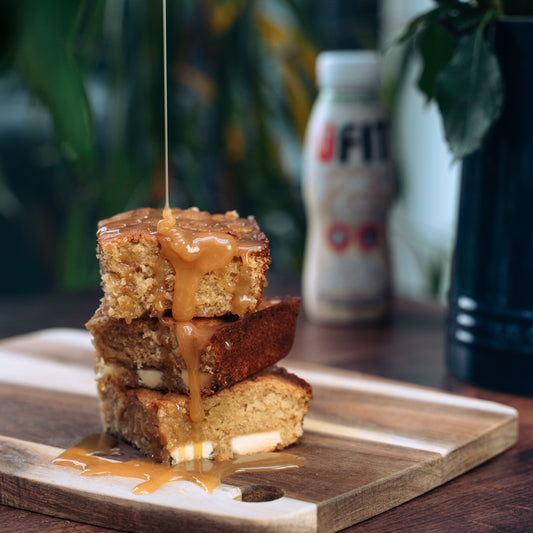We are bombarded with product claims when we watch television, read magazines, enter a supermarket or go online. It's no wonder most of us are utterly confused by what is and what isn't good for us. Sometimes clever marketing wins us over and we include various things in our diets that could be sabotaging our weight loss efforts! Here are some of the classic culprits.
1. Olive oil: this is very healthy source of unsaturated fat on one hand but equally as fattening as butter! Just 1 tablespoon contains over 100 calories. Less sloshing from the bottle and more pouring out onto a spoon before adding to a pan or your food.
2. Granola/cereal: whilst granolas may on the forefront seem like a healthy option, almost all are extremely high in fat and sugar. Just one small bowl contains over 12g sugar and more than 5g fat. Cereals can be a very healthy breakfast choice but do not be fooled by good marketing strategies and healthy looking bags, check the nutritional information and opt for low sugar, wholegrain cereals like porridge oats or oatmeal.
3. Dried fruit: whilst packed with many health benefits dried fruit is extremely calorie and sugar dense! Just a small handful can provide over 20g of sugar and more than 100 calories. Choose fresh fruit instead or ensure you weigh out the correct portion and don't graze from the packet to keep portion size down.
4. Smoothies: juicing fruit seems to be the latest weight loss tool, and can be a good way to get our 5 a day. However the average small bottle of smoothie that many of us pick up alongside our lunch could be adding more sugar to our system than a can of full sugar cola!
5. Fat free foods: just because something is labelled as fat free it is not a license to eat as much as you like. Fat free foods are often calorie reduced due to the fat being removed, but more often than not sugar is added so improve the taste when the fat is removed. You may be better off opting for a full fat version and eating less!
6. Honey: a natural sugar - be honest, you've said it. The same goes for natural sugar and table sugar. It still contains calories and still needs to be used in moderation. By all means choose honey or agave nectar over table sugar but as with oil measure it onto a spoon before adding to your food.
7. Nuts/Nut Butters: whilst nuts and natural nut butters are a fantastic source of heart healthy fats, and do make a great snack, again the problem is we tend to label them as healthy, crack open a family sized bag and graze on them all day. Before you've even looked down you've put away over 1,000 calories. Be sure to portion nuts or nut butter out if you can't be trusted to keep portions sizes down.
8. Supermarket Healthy Ranges: don't be fooled! Just because a supermarket it claiming it is good for you it doesn't mean you can eat unlimited amounts. Granted these options tend to be lighter in calories or fat than their original cousin, but additional sugars are often added to improve the flavour. Be smart and turn the packet over to check the ingredients list and nutritional table.
9. Restaurant Salads: we've all done it. You are on a diet or healthy eating plan and get invited out for lunch. You skip immediately to the salad section as this is the best option right? Wrong! Many salad options on restaurant menus contain as many calories and sometimes more than many main meal options. This tends to come from the dressing or the vast quantity of cheese added to liven it up. Be sure to scan over the entire menu when eating out. Often something from the grill section can be the best option. A lean steak or grilled chicken breast and perhaps request rice or salad over the usual chips.
10. Fruit: now don't get us wrong. Fruit contains tonnes of nutrients and essential fibre. However, it is very high in sugar. When trying to lose weight including lots of fruit in your diet could be sabotaging your efforts. Stick to lower sugar types of fruit like berries with a limited amount from very carb heavy fruit like bananas and melon.
The moral of the story here is managing your portions is key. All of the above foods CAN be included as part of a healthy diet, but in moderation. When trying to lose weight it's important to look further into what you are consuming and not to be fooled by clever marketing.



